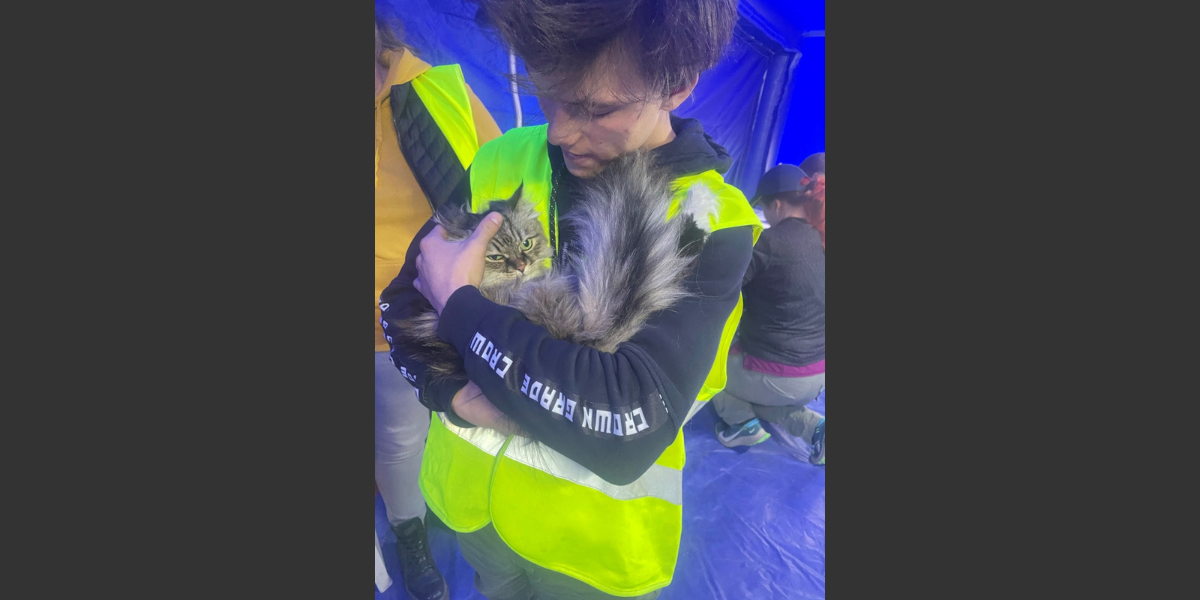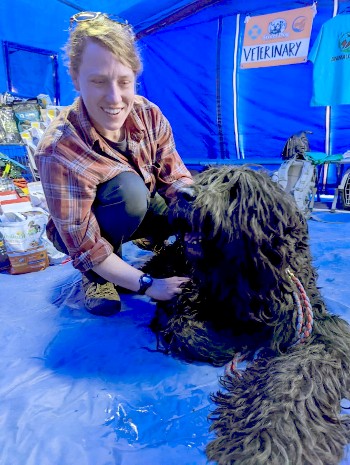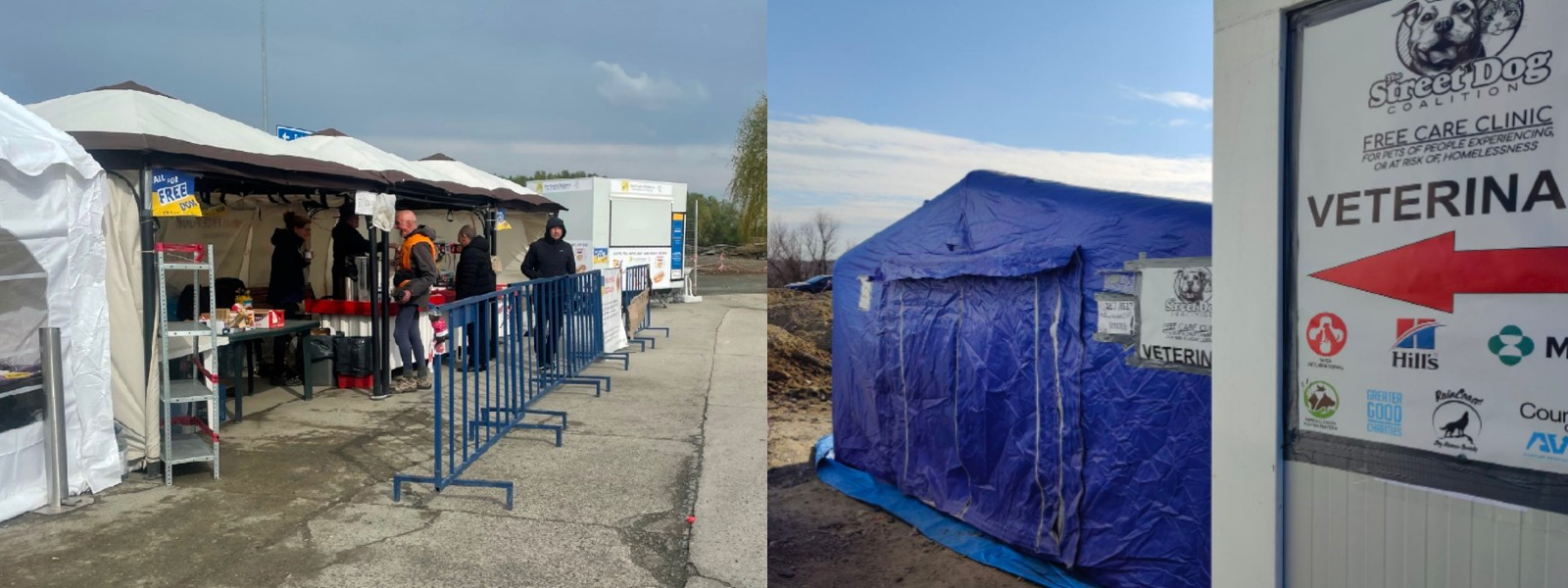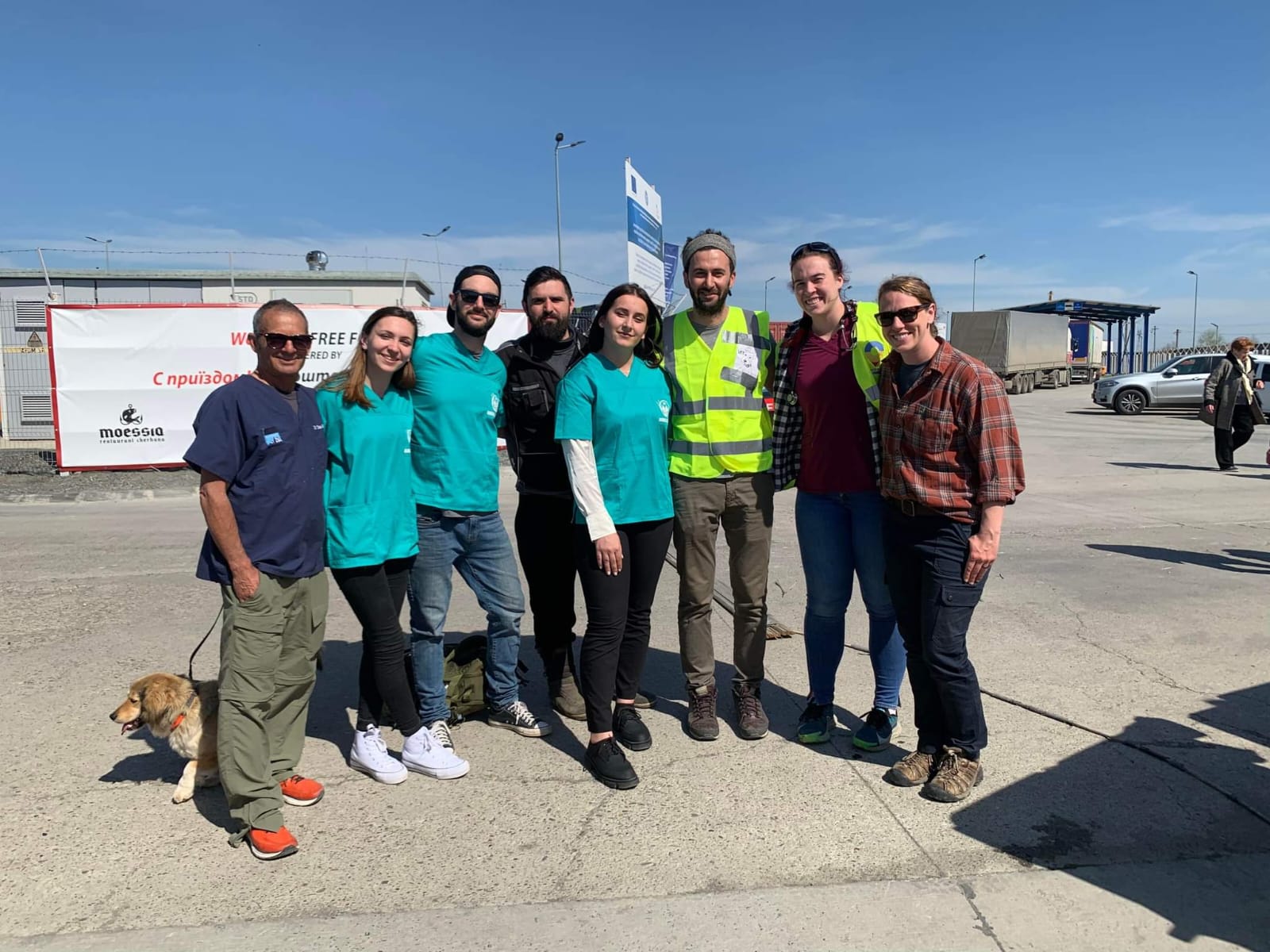Care in crisis
Dr. Whitney Waldsmith travels to Romania to help Ukrainian refugees take their pets with them as they make a perilous journey

Dr. Whitney Waldsmith travels to Romania to help Ukrainian refugees take their pets with them as they make a perilous journey
Dr. Whitney Waldsmith holds a feline patient in an exam tent. Photo courtesy of Whitney Waldsmith.
Of the nearly 7 million Ukrainians that have fled their country since late February, almost 1 million have settled in neighboring Romania. Millions more passed through the nation on their way to other places in the European Union (EU)––to meet up with friends of friends who had space in an apartment in Italy, or a quickly staged convention center in Poland where cots covered the floor.
Among the most precious possessions people brought with them are the ones that are often overlooked by relief efforts––their beloved pets.
“People had traveled very long distances just holding their animals in their laps,” says Dr. Whitney Waldsmith, an assistant professor of veterinary clinical sciences at the University of Minnesota (UMN) College of Veterinary Medicine (CVM). “So many people were really dedicated to making sure they could have their animals with them and that speaks to the importance of pets in our lives.”

Waldsmith, who is also an assistant professor in CVM’s Community Medicine Initiative, traveled to Isaccea, a border town just across the Danube River from Ukraine’s southern boundary with Romania, in April to work with Romanian veterinarians and a non-profit called Street Dog Coalition to help Ukrainian refugees prepare their pets to enter the EU. At the time, 2,000 people were crossing into Isaccea daily. They provided basic care, including deworming medication, vaccines, and microchipping, which all pets must have before they’re allowed to enter the EU.
“We weren’t doing any complex medicine, but we were trying to facilitate these people being able to move across the borders with their pets, so people could be confident they would be able to go where they needed to go and not have to leave their pets behind,” Waldsmith says.
The crisis in Ukraine is one of the first examples of large groups of displaced people moving with companion animals.
“We have seen people moving with agricultural animals in other conflicts, but not so much pets,” Waldsmith says, adding that pets can be a huge source of emotional and psychological support in any situation, especially to refugees.
She saw helping ease the movement of pets across the Ukrainian border as an opportunity to expand upon the mission of the CVM’s Community Medicine Initiative, and to show an example of what international opportunities may look like.
“The Community Medicine Initiative is really focused on the importance of the human-animal bond, especially when people are experiencing external stressors,” she says. “This opportunity to work in Romania fit in quite nicely with that.”
The initiative currently includes two local, student-led programs. Veterinary Treatment Outreach for Urban Community Health (VeTouch) provides basic medical and wellness care for pets belonging to families receiving little to no income in Hennepin County, while the Student Initiative for Reservation Veterinary Services (SIRVS) works with tribal nations throughout Minnesota to provide no-cost veterinary services to the pets living on reservations.
Waldsmith is working to open up more opportunities for veterinary students to work with communities abroad.
“Our students could learn a ton from working with cultures outside of their own. Working with communities that have limited access to resources teaches students to work in a culturally diverse and flexible way,” she says.
During her two weeks in Romania, Waldsmith and the team of local veterinarians served 183 pets that had crossed the border at Isaccea. The team worked from a tent that withstood all manner of weather, from snow to unrelenting heat. Despite the conditions, when the animals left the tent, they were equipped with everything they needed to legally enter the EU.

“The situation was pretty new, especially at the time I was there. A lot of it was people who had just fled trying to understand their options of where to go and what resources were available on the fly,” she says.
It wasn’t the first time Waldsmith has worked in conflict. After graduating from the UMN’s veterinary medicine program in 2013, she spent eight years working in the United States Army. Her job was to understand causes of conflict and to identify how best to mitigate it, with the aim of stopping a war before it starts.
“I love getting the opportunity to meet people and understand what their challenges are, and work with a population that does not have the same background as I do,” she says. "We have a lot to learn from each other.”
